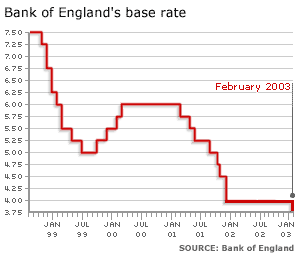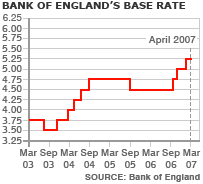We’d like to remind Forumites to please avoid political debate on the Forum.
This is to keep it a safe and useful space for MoneySaving discussions. Threads that are – or become – political in nature may be removed in line with the Forum’s rules. Thank you for your understanding.
PLEASE READ BEFORE POSTING: Hello Forumites! In order to help keep the Forum a useful, safe and friendly place for our users, discussions around non-MoneySaving matters are not permitted per the Forum rules. While we understand that mentioning house prices may sometimes be relevant to a user's specific MoneySaving situation, we ask that you please avoid veering into broad, general debates about the market, the economy and politics, as these can unfortunately lead to abusive or hateful behaviour. Threads that are found to have derailed into wider discussions may be removed. Users who repeatedly disregard this may have their Forum account banned. Please also avoid posting personally identifiable information, including links to your own online property listing which may reveal your address. Thank you for your understanding.
📨 Have you signed up to the Forum's new Email Digest yet? Get a selection of trending threads sent straight to your inbox daily, weekly or monthly!
The Forum now has a brand new text editor, adding a bunch of handy features to use when creating posts. Read more in our how-to guide
It's a bubble silly!
Generali
Posts: 36,411 Forumite



I think that house prices reflect a global credit bubble. However, I always look at my assumptions on the basis that I may well be wrong.
If house price inflation across the world is due to changed market fundamentals, what has changed? House prices have gone up across almost every country in the world bar Japan and Germany over the last 5-10 years.
House price inflation of 100%+ has been seen in the UK, Australia, Spain, the Faroe Islands, most of Africa and Asia.
Why???
Unless it's a massive credit bubble of course.
Interested to see different views about this.
If house price inflation across the world is due to changed market fundamentals, what has changed? House prices have gone up across almost every country in the world bar Japan and Germany over the last 5-10 years.
House price inflation of 100%+ has been seen in the UK, Australia, Spain, the Faroe Islands, most of Africa and Asia.
Why???
Unless it's a massive credit bubble of course.
Interested to see different views about this.
0
Comments
-
Go back 50 years. Many people spent their whole lives in rented places. It was very hard to get a mortgage, partly because there were many credit controls.
Look at the mid eighties onwards. Credit became easier to get, people now could borrow money easily to buy a house, so more people aspired to own one, but the total stock of houses available did not substantially change. Result - rise in prices.
Of course there will be fluctuations in the market, because the market depends on confidence and also on the job market. Housing is so expensive that people need to be confident they are not losing a lifetime's earnings when they buy.
Possibly similar factors at play in other countries.0 -
Unless it's a massive credit bubble of course.
Todays Observer article thinks so!
"there is a considerable risk that inflation could rise above 3 per cent and carry on rising, and for very similar reasons that inflation got out of hand in the late 1980s. No economy anywhere with reasonably full employment can allow bank lending to grow at 14 or 15 per cent a year as it is in Britain at the moment and expect inflation to remain at 2 per cent. Demand soars above any probable supply, earnings growth picks up and imports balloon. Either lending is forced lower by higher interest rates or inflation accelerates"
http://observer.guardian.co.uk/comment/story/0,,2073503,00.html
As I've said before - it feels like the late 80's all over again!0 -
The difference this time is the amount of debt people are in means a slight rise pushes them over the edge. You can earn as little as £15,000 but have £50-100,000 available on credit cards.Barclaycard 3800
Nothing to do but hibernate till spring
0 -
This is the most significant part of that article IMO
House prices are now six times average incomes - 20 per cent higher than before the calamity of the early 1990s - and forcing ever higher amounts of mortgage and bank lending, which, in turn, push up inflation.
It is the eighties all over again, some people say 'yeah but interest rates were at 15% then'
That was when people had only borrowed 2.5 times their salary not 6 and had no credit cards and Norton finance loans.
7% is the new 15%...........but that will never happen the government wont let it happen:rotfl:
Oh hello whats this?
 0
0 -
Something wrong with the maths here me thinks....House prices are now six times average incomes - 20 per cent higher than before the calamity of the early 1990sThat was when people had only borrowed 2.5 times their salary not 6
2.5 + 20% does not 6 equal?0 -
Wrong calculation. Interest rates were a least twice as high - therefore 2.5 x 2 = 5, which is about the salary multiples that we're seeing at the moment.Errors of opinion may be tolerated where reason is left free to combat it. - Jefferson0
-
I'm not an economist but I think an argument might go along the lines of;
'There is a finite amount of money available in a system' ( I think it's named after a motorway, the M1 or somethng like it!)
If we're borrowing what are we borrowing? Where is all the money coming from? The banks? You mean to say they've been sat on it for years and have just decided to lend it to us?
It has to be lent against a net value somewhere and the mechanism that will increase that value is inflation. Therefore rising house prices are necessary so that the banks can keep on lending us money so that we can afford to buy them. Obscure rational I know, but try the veiw through the other side of the looking glass.
Have you noticed we all suddenly got rich? And bought loads of stuff. Its woven into our social fabric. Excuss me I couldn't help but notice, but I appear to have considerably more stuff than you! This stuff eventually needs replacing.
So we all got rich, we had choice, we had power, and then we used this to borrow money. And then we all serviced debt. I wonder if history will judge this period in our time as one in which saw the biggest migration of money and assets and ultimately power back into the hands of the banks?
Would I be going too far if I suggested that we are just slaves? Not in the Roman, Babelonian or Assyrian contexts but rather an economic one? Where we at least have an illusion.
Anyway must dash I'm off out shopping. Think I'll take the Porsche.0 -
Melissa177 wrote: »Wrong calculation. Interest rates were a least twice as high - therefore 2.5 x 2 = 5, which is about the salary multiples that we're seeing at the moment.
Can you really use interest rates in a 'house prices as a quantity of salary' equation? I'd agree it affects the repayments, but I dont think you can say houses were then 2.5x income + double interest oh we'll say thats 5x income?? Because the HOUSE PRICE hasnt changed.....
Sorry Nelly for my slight grammatical error (it was done slightly tongue in cheek to be fair). I notice you didnt capitalise the beginning of your sentence since we're going to be insanely pedantic.....0 -
If we are slaves then we are slaves to our desires not the 'system'. You don't need a porsche or a car even. You don't need holidays, credit cards, ipods, insurance, stereos, new clothes, pets, phones, broadband, LCD TV's or Marks and Spencer pasta salad. Just ask anyone in the 3rd world. Just ask any of the indentured slaves in India and elsewhere in the world.
If we want we can live with less but we are surrounded by temptation and bombarded with messages to make us insecure about our status.
We are greedy, weak and easy to take advantage of.0
This discussion has been closed.
Confirm your email address to Create Threads and Reply

Categories
- All Categories
- 353.5K Banking & Borrowing
- 254.1K Reduce Debt & Boost Income
- 455K Spending & Discounts
- 246.5K Work, Benefits & Business
- 602.9K Mortgages, Homes & Bills
- 178K Life & Family
- 260.5K Travel & Transport
- 1.5M Hobbies & Leisure
- 16K Discuss & Feedback
- 37.7K Read-Only Boards

